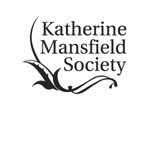Postgraduate Day 2018
‘Katherine Mansfield & Writing New Worlds’
27 March 2018
Hosted by Queens' College, University of Cambridge
Keynote Speaker: Professor Andrew Thacker (Nottingham Trent University)
As Katherine Mansfield penned her short fiction during the early twentieth century, modern life had taken on a vibrant new tempo. Nineteenth-century forces had accelerated cultural and political interconnectedness on a planetary scale, and with it ushered in fresh modes of being. New forms of urban living, global pathways of commerce and migration, political turmoil, and emerging recognitions (and cognitions) of the self, shaped the new worlds captured in Mansfield’s writing.
Click to download programme as a PDF
Co-organiser Joe Williams writes:
The river Cam cuts Queens’ College into two halves: the ‘dark side’ with its original fifteenth-century courts and the ‘light side’, in late-twentieth-century glass and concrete. Foot traffic between both sides must pass over the famed Mathematical Bridge — which has nothing to do whatsoever with Sir Isaac Newton, his tree, or his apple (despite what you may have been told by a fervid punting-guide). For this year’s Katherine Mansfield Society postgraduate symposium, we were generously hosted by Queens’ College in a large room on the ‘light side’, overlooking the Queen’s Road (sometimes just known as ‘the Backs’ for its picturesque views of Cambridge). Flavoured with a genuine variety of excellent papers, the delegates braved the wavering March weather for an engaging and action-packed day.
This was the 4th postgraduate event convened by the KMS since it was founded, entitled ‘Katherine Mansfield & Writing New Worlds’. Organised by Gerri Kimber, Janet Wilson, and myself, it saw early career scholars hailing from a myriad of institutions to present work on Mansfield and her contemporaries (I here spell ‘myriad’ correctly, and not as ‘myriam’, as I somehow missed several times revising the programme). The day pulled in scholars from all over the UK, including Birkbeck, Cambridge, Kent, Middlesex and Northampton, Oxford, and St Andrews, as well as a dozen or so non-speaking attendees.
Having broken the ice the night before at a dinner at a Thai restaurant, our first panel saw four papers on Mansfield and Virginia Woolf. Loosely psychoanalytic in their approach, they covered the depiction of hats in Mansfield’s short stories, reflections on submerged selves in Mansfield, how the narrative structure of ‘Prelude’ forms the characters’ identities, and the central role of ‘touch’ and sensory experiences to Woolf’s Night and Day. Our second panel explored the nature of the telephone in Mansfield’s work, Woolf and Mansfield’s attempts imitate the qualities of music in their writing, and the role of the New Physics and scientific discoveries of the twentieth century in the fiction of Woolf and James Joyce. Our final panel engaged with Mansfield’s inconsistent depictions of New Zealand, the modernist form of Olive Schreiner’s The Story of an African Farm, and an analysis of depictions of Alexandria in Lawrence Durrell’s Alexandria Quartet. Many of the attendees remarked that the papers were of a uniformly high standard, but aside from being lucid and intelligent, they were all enjoyable to listen to – and followed by lively Q&A sessions.
Andrew Thacker, Professor of Twentieth Century Literature at Nottingham Trent University, gave the keynote talk on ‘Mood, Affect and the Modernist City: Katherine Mansfield and Jean Rhys’, expanding on his forthcoming monograph on the same subject. Whilst Jean Rhys features prominently in this book on mood and modernist space, Thacker took the opportunity of his talk to give excellent reflections on how such ideas apply to Mansfield too, both émigrés into the bustling city of Paris. I found particularly compelling his ideas and archival finds concerning bookshops, including the purported borrowing card of Jean Rhys, showing clearly her taking out a copy of The Garden Party & Other Stories.
The day ended with Janet Wilson and Gerri Kimber offering thoughts on how Mansfield studies has evolved in new directions, invigorated by the influence of the KMS. For all, it was enthralling to see the diverse future orientations of scholarship on Mansfield, Woolf, and others. All delegates were warmly invited to join the commemorative conference in June at Birkbeck, University of London, which is being held to celebrate ten years of the KMS.

